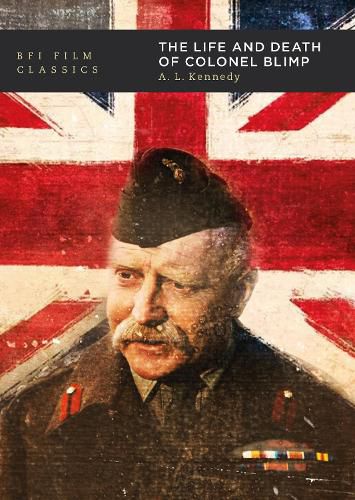Readings Newsletter
Become a Readings Member to make your shopping experience even easier.
Sign in or sign up for free!
You’re not far away from qualifying for FREE standard shipping within Australia
You’ve qualified for FREE standard shipping within Australia
The cart is loading…






Winston Churchill hated The Life and Death of Colonel Blimp, and tried to have it banned when it was released in 1943. But Martin Scorsese, a champion of directors Michael Powell and Emeric Pressburger, considers it a masterpiece. It’s a film about desires repressed in favour of worthless and unsatisfying ideals. And it’s a film about how England dreamt of itself as a nation and how this dream disguised inadequacy and brutality in the clothes of honour. A. L. Kennedy, writing as a Scot, is fascinated by the nationalism which The Life and Death of Colonel Blimp explores. She finds human worth in the film and the pathos of stifled emotions and unfulfilled lives. ‘If he is unaware of his passions, ’ she writes of Clive Candy, the film’s central figure, ‘this is because his pains have become habitual, a part of personality, and because he was never taught a language that could speak of emotions like pain.’. This edition includes a foreword by the author exploring the film’s continuing relevance in an age of Brexit, when English and British national identity are deeply contested concepts.
$9.00 standard shipping within Australia
FREE standard shipping within Australia for orders over $100.00
Express & International shipping calculated at checkout
Winston Churchill hated The Life and Death of Colonel Blimp, and tried to have it banned when it was released in 1943. But Martin Scorsese, a champion of directors Michael Powell and Emeric Pressburger, considers it a masterpiece. It’s a film about desires repressed in favour of worthless and unsatisfying ideals. And it’s a film about how England dreamt of itself as a nation and how this dream disguised inadequacy and brutality in the clothes of honour. A. L. Kennedy, writing as a Scot, is fascinated by the nationalism which The Life and Death of Colonel Blimp explores. She finds human worth in the film and the pathos of stifled emotions and unfulfilled lives. ‘If he is unaware of his passions, ’ she writes of Clive Candy, the film’s central figure, ‘this is because his pains have become habitual, a part of personality, and because he was never taught a language that could speak of emotions like pain.’. This edition includes a foreword by the author exploring the film’s continuing relevance in an age of Brexit, when English and British national identity are deeply contested concepts.